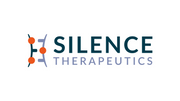Specifically, the BIA advocates for the life science sector on issues related to medicines regulation which affects:
- Clinical development: The BIA works to ensure that the regulatory environment is supportive of the clinical development of new medicines. This includes advocating for streamlined regulatory processes, access to patients for clinical trials, and the timely approval of new medicines.
- Medicines approval: The BIA advocates for the timely approval of new medicines that meet the standards of safety and efficacy. We also work to ensure that the regulatory process is transparent and predictable so that the life science sector can plan its investments accordingly.
- Access to new medicines: The BIA advocates for patient access to new medicines. This includes working with government to ensure that the National Health Service (NHS) has the resources it needs to purchase new medicines and that patients have access to innovative treatments through private insurance and patient access schemes.
The BIA is committed to working with all stakeholders to ensure that the regulatory environment is supportive of innovation and patient access to new medicines. We believe that this is essential for the UK to remain a global leader in the life sciences sector. We work both on our own and with partner organisations, domestically and in the EU, to ensure a coherent approach to regulatory activities.
Regulatory Affairs Advisory Committee (RAAC)
The RAAC supports the BIA’s regulatory affairs activity and provides the opportunity for BIA members to contribute to its agenda.
RAAC Chair and Vice-Chair
RAAC Members
BIA regulatory affairs strategic objectives
- Reflect the interests of both SMEs and mid-to-large biopharmaceutical companies
- Influence regulators and policymakers concerning legislative and policy changes and initiatives affecting the life sciences industry
- Advocate and provide BIA unique insights for a supportive regulatory environment for R&D and innovation in the UK and EU
- Maintain strong relationships with key UK and EU regulators and engage with HTA bodies
- Develop the future UK medicines regulatory framework post-Brexit
Working with government
We have a strong relationship with the Medicines and Healthcare products Regulatory Agency (MHRA). The annual regulatory conference, supported by the MHRA and RAAC, brings in globally recognised speakers to discuss and debate key regulatory policy issues for the life sciences sector.
We engage with the European Medicines Agency (EMA) and participate in meetings/workshops on topics of common interest.
The BIA is leading in collaboration with partner organisations to address the practical issues and challenges following the EU Referendum outcome and secure a European partnership for medicines regulation post-Brexit.
To improve access to innovative medicines, we support and contribute to the development of accelerated regulatory pathways (e.g. EAMS, PRIME, adaptive pathways), and collaborate with the National Institute for Health and Care Excellence (NICE) (e.g. data sharing during the regulatory process).



























